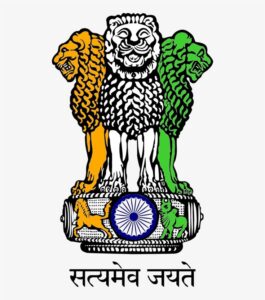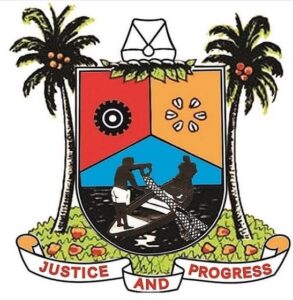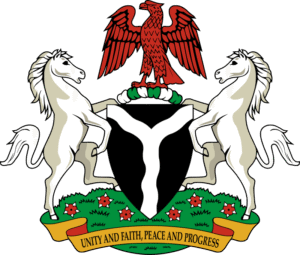By The National Patriots.
When night fell over Victoria Island, Lagos, on Monday, the skyline lit up—not with controlled celebration, but with deafening bursts of fireworks so intense they shook windows, triggered panic calls to police, and kept thousands of residents awake well past midnight. What was meant to be a cultural festivity turned into a night of choking fumes, rattled nerves, and environmental lawlessness.

From 7:00 p.m. until nearly 1:00 a.m., explosions echoed through one of Nigeria’s most densely populated and affluent business districts. Residents described it as “a war zone,” with vibrations strong enough to unsettle building foundations. Concerned citizens flooded emergency hotlines, fearing a terrorist attack. Instead, they were told the noise came from Diwali celebrations—an Indian festival of lights now celebrated by many across the world. The fireworks continued till Tuesday the 21st of October 2025 till 12 midnight which shows an exaggeration of the Diwali culture in a Foreign land. LASEPA ought to have responded to this immediately.

The Unseen Danger: Toxic Air and Noise Pollution
While fireworks are synonymous with celebration, their cumulative impact on air quality, noise pollution, and public health is staggering. The Lagos State Environmental Protection Agency (LASEPA) sets a maximum permissible night-time noise level of 45 decibels in residential areas. Yet, noise meters operated by HeadlineNews.News just eight minutes from the epicenter of the activity recorded sound bursts exceeding 100 decibels—over 1,000 times more intense than legal limits in acoustic energy.
To put this in context, 45 decibels equates to a quiet conversation; 100 decibels is the roar of a jet engine at close range. The disruption extended to hospitals, elderly homes, and families with infants, many of whom reported sleeplessness, anxiety, and respiratory irritation from the smoke and ash-laden air.

Air Quality Crisis: A Lesson from Delhi
The timing could not be worse. In New Delhi, India, where Diwali originated, authorities had banned traditional fireworks since 2020 to combat the city’s recurring smog emergency. In 2025, the ban was partially lifted to allow supposedly “green” fireworks—marketed as 30% less toxic. However, non-compliance was rampant. By the next morning, Delhi woke to hazardous air, with the Air Quality Index (AQI) soaring beyond 500, the maximum measurable threshold on most monitoring systems.

Residents reported ash dust settling on vehicles, burning eyes, and an acrid taste of smoke in their mouths. Schools were closed, and visibility fell to a few hundred meters. Experts from India’s Central Pollution Control Board confirmed that “green” fireworks made no measurable improvement because the public largely ignored the restriction.
The scene in Victoria Island on Diwali night eerily mirrored that chaos: a city choked by cultural enthusiasm without environmental responsibility.
Global Standards vs. Lagos’ Reality
Major global cities have faced similar dilemmas—and acted decisively:

Dubai and Abu Dhabi (UAE) permit fireworks only at licensed public shows conducted by professional pyrotechnic firms, under strict supervision. Violations attract heavy fines and possible imprisonment.
Singapore has banned private fireworks since 1972, allowing only government-approved displays for national events.
London and Manchester (UK) enforce an 11 p.m. fireworks curfew, extended to 1 a.m. on Diwali—and only for designated sites with sound and safety clearances.
New York City prohibits all consumer fireworks; even sparklers are banned within city limits.
In comparison, Lagos remains dangerously permissive. Despite robust environmental laws, enforcement is inconsistent. Victoria Island, classified as a mixed-use residential and commercial zone, should never have been subjected to explosive activity exceeding 100 decibels for six continuous hours.

Environmental and Health Fallout
Fireworks release heavy metals (barium, strontium, lead), sulfur compounds, and fine particulate matter (PM2.5)—the same deadly pollutant responsible for chronic respiratory illnesses and premature deaths in cities like Delhi and Beijing. In high concentrations, PM2.5 particles penetrate deep into the lungs and bloodstream, aggravating asthma, heart disease, and stroke risk.
Lagos’ coastal geography worsens the problem. The city’s humid inversion layers trap smoke close to the ground, creating a lingering haze. Without strong overnight winds, these pollutants remain suspended for hours—forcing residents to inhale a toxic cocktail of chemicals long after the fireworks stop.
Public health experts warn that even short-term exposure can have lasting effects, especially for children, the elderly, and patients with respiratory conditions.
Failure of Oversight
Residents and environmental activists say the Lagos State Environmental Protection Agency (LASEPA) was slow to respond, despite multiple emergency calls and online complaints. Victoria Island’s National Patriots Association, a civic advocacy group, has since petitioned the Lagos State Governor, urging a permanent ban on private fireworks during Diwali and stricter controls on importation.

According to the petition, “It is unacceptable that a foreign cultural celebration should jeopardize the health and safety of Nigerians in their homes. Lagos cannot host cultural excesses that threaten public health and peace.”
The group’s demands include:
An immediate ban on all unlicensed fireworks within Lagos State.
Noise and air quality monitoring during festive periods.
Seizure and destruction of illegal firecrackers sold in open markets.
Introduction of permits for professional displays only, limited to public grounds and under police supervision.
Why Authorities Must Act
Nigeria already struggles with environmental degradation, urban stress, and poor public health infrastructure. Allowing massive fireworks in densely populated districts like Victoria Island not only undermines existing laws but signals a lack of seriousness toward climate and health governance.

A seven-point enforcement plan modeled after international best practices could restore control:
Restrict fireworks to licensed public displays by registered operators.
Impose a 7–10 p.m. curfew on all pyrotechnic activities.
Enforce decibel and air-quality thresholds using mobile monitors.
Mandate real-time alerts and hotline responses for residents.
Penalize violators with fines, confiscations, and possible prosecution.

Coordinate with Customs to block imports of high-intensity fireworks.
Launch public awareness campaigns linking air pollution to health risks.
Beyond Culture: A Question of Common Sense
Cultural diversity should never come at the expense of environmental sanity. Lagos, Africa’s largest city, has every right to welcome Diwali’s message of light—but not at the cost of darkness over its skies and the suffocation of its people.
This year’s event has set a dangerous precedent. What happened in Victoria Island is not celebration—it is neglect disguised as festivity. If Delhi, with all its technological capacity, still gasps under the haze of fireworks, Lagos must learn before it burns.

The Lagos State Government must act swiftly—not against a community, but in defense of public health, safety, and the environment.
Because no cultural expression should make a city unlivable for its own people.
Princess Gloria Adebajo-Fraser MFR.
The National Patriots.




